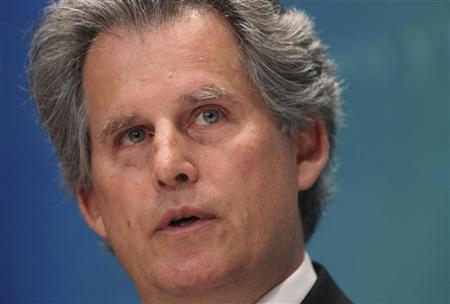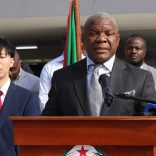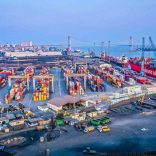ATAF launches hands-on support for tax audits in Mozambique
“We are very suportive of Mozambique” – IMF’s Lipton, as he warns Africa must avoid infrastructure debt traps

Reuters (File photo) / David Lipton, First Deputy Managing Director of the IMF
African nations need to find the right balance when pursuing infrastructure projects to avoid falling into deeper debt traps, according to David Lipton, First Deputy Managing Director of the International Monetary Fund.
“Infrastructure projects can be very successful in supporting growth if countries pick the right projects and carry them out in an efficient fashion,” Lipton said in a interview in the Kenyan capital, Nairobi on Tuesday. “Mistakes or inefficiencies can leave a country with more debt than benefits, so it’s important to strike that balance.”
The Washington-based lender warned last week that sub-Saharan African nations need to contain their fiscal deficits otherwise they may be vulnerable if external financing becomes more expensive. African countries from Ghana to Mozambique have approached the IMF for assistance since the start of last year as high borrowing costs shut them out of international capital markets. Budget and current-account shortfalls have widened after the global slump in commodity prices led to a plunge in government revenue among raw-material exporters.
“Many countries have recently overcome problems with debt and it’s important that they don’t develop new debt problems,” Lipton said. “I don’t see countries right now that are worrisome, but it is a risk that countries have to be careful to avoid.”
Lipton visited Kenya on Monday and Tuesday and said the east African nation has to balance efforts to quicken economic growth with the need to narrow its budget shortfall. Kenya’s fiscal gap will probably widen to 8.7 percent of gross domestic product in the year through June, from 7.8 percent in the previous fiscal year, according to government forecasts. Economic growth will probably accelerate to 6 percent this year from 5.6 percent in 2015.
“The budget deficit recently has been at a level that would lead Kenya to have rising debt all the time,” Lipton said. By narrowing the shortfall “it would then be able to avoid rising public debt and that would help give Kenya an important margin of safety in its debt levels in case it ever suffered a difficult period where it needed to borrow.”
The IMF last month cancelled a mission to Mozambique after it discovered authorities had failed to disclose around $1 billion of debt and said it changes the fund’s assessment of the coal-producing nation’s macroeconomic outlook. Fitch Ratings Ltd. downgraded Mozambique’s credit rating to CCC from B and said the country’s public debt profile has deteriorated sharply.
Mozambican authorities have provided information to the lender which its staff are analyzing, Lipton said.
“We are very supportive of Mozambique,” he said. “It is important that we all together find a way out of the situation.”












Leave a Reply
Be the First to Comment!
You must be logged in to post a comment.
You must be logged in to post a comment.